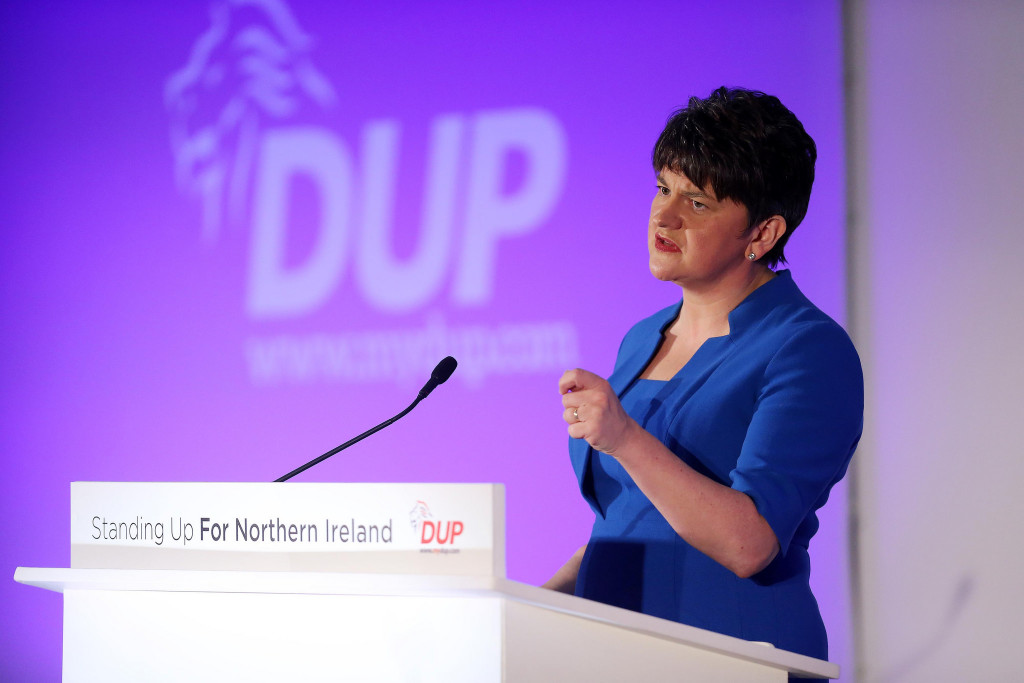How do we really beat the DUP at the Ballot Box?

Let’s be honest: barring some miracle, the DUP will come out of this election just as strong as from the last one. The party that’s proved its incompetence and corruption time and time again; that consistently slumps behind public opinion on LGBTQ and women’s rights; and that disregards its commitments both to integration and the Irish language sector, is likely to continue defining governance in the North. They will continue to use the Petition of Concern to veto progress and equality.
Previous elections have shown how the DUP manages to consolidate its dominance, even in the face of these scandals. So, the question for progressive activists becomes: how do we beat the DUP? What’s the most effective way to reduce their electoral power? In other words, how do we get people to stop voting the bigots in?
The answer lies in the reasons people vote DUP. A majority of their voters are not driven by support for their social or economic policies, or their method of governance. Instead, the DUP effectively campaign on the basis of “keeping them’uns out” (one has only to look at 2016’s “Keep Arlene First Minister” campaign to see this). As long as there is a Nationalist bogeyman- specifically that of Sinn Féin- to point to as a threat, the DUP will leverage it to get potential supporters to vote for them.
Having elections based on NI’s “constitutional question” fundamentally plays into their hands- and even if framing elections around Unionism versus Nationalism causes nationalists to vote for Sinn Féin, it will give them more reasons to enthuse their supporters in loyalist areas; the stronger the nationalist bogeyman, the longer the DUP can hide behind their unionism.
To be clear, discussing the North’s constitutional position is not sectarian. But the DUP use it to paper over the cracks of their corruption and bigotry. And in the unfortunate paradox of Northern Irish politics, the more Sinn Féin’s nationalism pushes for popularity, the further it gets from power to implement policies that benefit Irish people, working class communities, or even Irish unity, as the DUP use their unionism to power their extremism.
For real, decisive progress on equality and fundamental change in Stormont, the North needs an opposition that the DUP can’t use as an electoral asset.
This doesn’t mean activists should abandon their constitutional views. But it does mean we have to consider the best long-term way to achieve our political goals, and to deprive our opponents of the means by which to succeed. We have to de-sectarian-ise the North’s politics, to allow people of every background no reason to vote for the DUP. The bigots will only lose prominence once they lose the power to incite sectarianism.
The voices of the future in Ireland’s politics, for better or worse, must come from post-conflict organisations if they’re ever going to effectively overturn DUP rule and improve the lives of people in the North.
Here’s hoping that those post-conflict parties will continue to grow in this election, and provide accountability to which the DUP cannot shout “IRA!” in response.



Brilliant article!